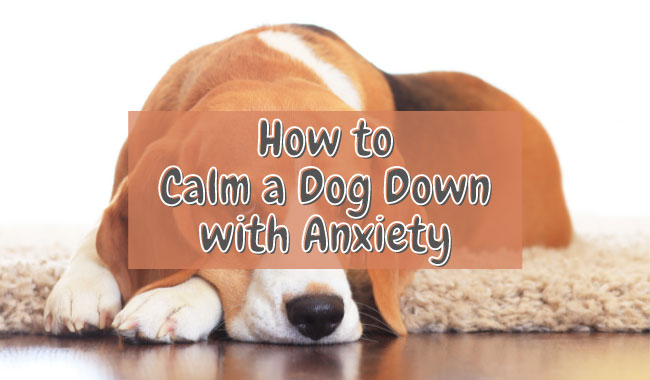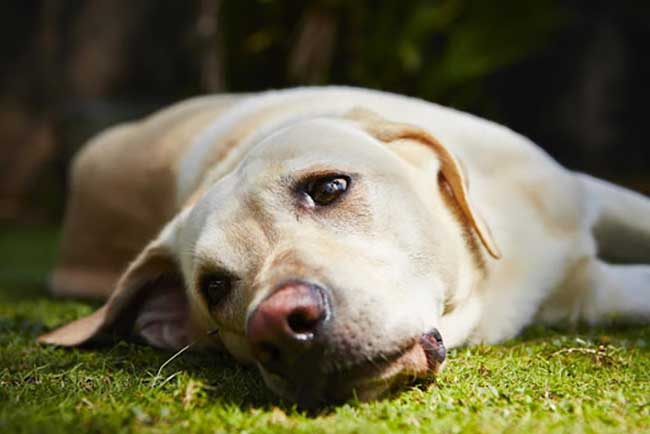
Depression…A never-ending abyss of the disparity. Shackles that scar our being into the darkest moments of our lives and slowly eat us inside out. Turning us into a husk of our former beings. If we stare into the abyss, the abyss will stare back at us. But depression is far more sinister and malicious, drawing upon our inner grief, pain, and anxiety. This demon slowly tortures us like parasites, destroying not just our lives but the people around us. These complex emotions don’t just belong to humans, our companions such as our pets like dogs do feel the cancer of our emotions known as depression.
Do Dogs Get Depressed?
Whether dogs get depressed or not cannot be quantified or explained by science yet. As humans, we have a lot to learn about our brains much less a different organism that speaks a foreign mysterious tongue. Veterinarians and researchers are at a standstill to what can be considered depression for dogs as they perceive everything from a different view completely unknown to us. But time and time again we have seen that dog’s sadness and depression profoundly resemble our own. Cryptic it may be, but the burden of proof is on us to deduce whether they are indeed in pain.
For the time being, we can’t find out no matter how we try. Communication through signs and noise is not enough. They can’t talk to us. Mute is the man who tries to talk to them, just like they are mute to us. Maybe one day through the advancement of science, we will find out that they deal with those chains like us. And to not let them down while they are suffering, the best we can do is treat them as our equals and help them when they show they are depressed like us.
How Do You Know If Your Dog Is Depressed?
As we have noted before, there is no definite proof that they are depressed. All we know is they show the same behavioral symptoms as humans do, and this is the closest valid reference we can get.
One of the telltale signs that your dog is depressed is if their behavior changes drastically in a short period. This usually happens due to multiple reasons, some are related to you being too busy to be with your dog more often, and others are related to the dog losing someone close in its view. All of the known symptoms of such occurrence we will discuss in a more detailed manner below. For information on depression and to learn the symptoms, visit BetterHelp.
Related Post: Does Your Dog Have Separation Anxiety?
Distant
Dogs are always known to be a bit skittish when they are around you. They are playful and some dogs are rowdy too. But after any sort of event that is a traumatic event, everything around it lacks energy. It slowly grows distant, meaning it loses its touch to everything around. It will keep silent and lay down in a corner looking at nothing on end. They will avoid contact and be in their bubble. When you call them or command them, they will either just look at you with disinterest or just completely not bother and move on. This can escalate very fast. This connects to all the other depression symptoms usually.
Appetite Loss
Dogs are voracious, meaning they like to gobble up food. They have no filter to as when they have had enough. This can be bad to the point where they eat so much they gain excess weight and also often vomit food. But after a long day when you give your dog a nice bowl of dog food and they just shrug its existence off, you are probably looking at some sort of mental or health-related problem. The best possibility is that they didn’t release all the energy in their body by doing some sort of movement or playing. The worst is you are looking at an ill patient.
Oversleeping
Dogs often can oversleep if they are depressed. They won’t wake up as much and try to sleep their emotions away just like us. You can keep calling them but they will barely respond. And if you don’t let them sleep that much they will try to completely avoid you if they can or show bad temper. This can have very serious health risks involved. As long-term sleeping can even cause fat to deposit in their arteries and block their heart or even cause a brain hemorrhage. Other than that they can pass on meals as they don’t wake up to eat. They won’t be able to go or do any exercise.
Autocannibalism
As gross as the title of this paragraph might sound, this is a very common occurrence with humans. This is more prominent in younger ones. They often chew their nails or paws just like we chew our nails. This can damage the blood vessels in the nails and also permanent scarring. Sometimes this can lead to a variety of diseases including infection.
How Do We Treat Depression For Dogs?
Depression can be treated in a myriad of ways. Firstly, we can take them to the vet to check them if they have any physical illnesses that are causing this.
After that, we can either try to spend more time with them and try to help them get over it by always interacting with them. We can take them to exercise daily and play with them so they forget and move on. Give them very hearty delicious meals. Some professionals deal with these kinds of cases in countries like America. Therapists and vets are a must in these fronts. We can also help using prescription medicine with a vet’s permission, as these medications do exist and locally even.
To Conclude
But the fact is the dog’s depression doesn’t exist as our own but we know we can help them out with our care. Always persevere and happiness will follow as our efforts won’t be wasted.



